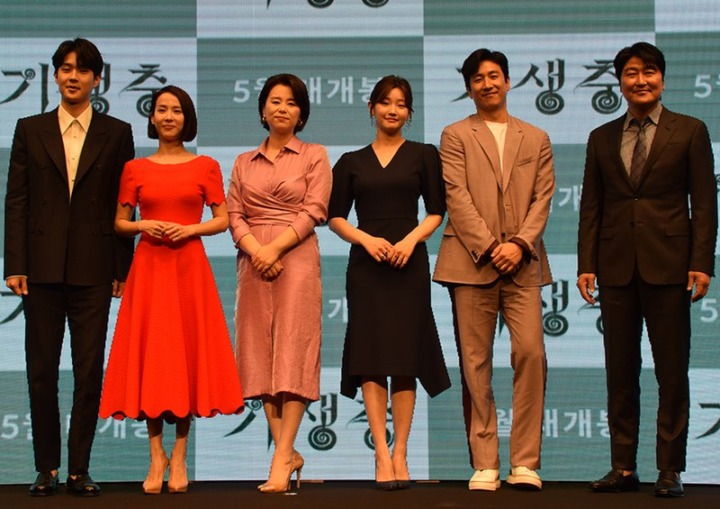私たち夫婦がおよそ5年前に今の町に引っ越した時の驚きを今でも覚えている。物価が何もかも想像以上に高いのだ。私たち夫婦は共働きではなかったし、ほどなくして(子どもが生まれて)3人家族になった。受けられるような支援もない移住者の私たちは、美しい郊外の町で底辺レベルの生活を送っていた。
[toggle]My husband and I moved to our current city almost five years ago, and I remember experiencing sticker shock. Everything cost more than we imagined. And unfortunately, we moved as a single-income couple and then became a family of three. We were transplants with no real support system, living life at the bottom of our otherwise affluent suburb. [/toggle]私たちは最初の3年間、半地下にある住居で過ごした。中庭に通じる階段の間から、通りの向こうにある大邸宅をぼんやりと眺めながら、私は物思いにふけっていた。「あそこにはどんな人が住んでいるのだろう」、「私たちがこれから一軒家を持つことなどあるのだろうか」。しかし、心の奥底では分かっていた。あんな家に住めるような生活に手が届くことなどあり得ないことだ。
[toggle]We spent our first three years living in a half-underground condo. Just above my view of our stairs leading up to the courtyard, I could see mansions across the street. I gawked at them, wondering what kind of people lived there and if we’d ever live in a house of our own. Deep down I knew that those houses, and those lives, would always be beyond my reach. [/toggle]
「パラサイト」のキャスト(写真:Kinocine PARKJEAHWAN4wiki)
映画「パラサイト──半地下の家族」で、半地下に住む家族が映し出されたとき、私がどれだけ驚いたか想像してほしい。父ギテク、母チュンスク、成人した息子ギウと娘ギジョンというキム一家は、韓国社会の隅に追いやられていた。一家は食べるのにも困り、安い日雇いの仕事をしながら、困窮状態に陥る直前の生活をしていた。彼らは貧しかったし、忘れ去られていた。残された選択肢は、生活が少しでも上向きになるよう地道に仕事をするか、その中で死ぬか、だけだ。
[toggle]Imagine my surprise when Parasite opened with a family that also lives half-underground. The Kim family—made up of father Ki-Taek, mother Chung-sook, and a grown son and daughter, Ki-woo and Ki-jeong—are on the fringe of South Korean society. They struggle to put food on the table, working temporary, low-paying jobs and living one disaster away from total destitution. The family is not only poor but forgotten, left to slowly work toward upward mobility or die trying. [/toggle]しかし、息子のギウがある友人から仕事を引き継ぐと、一家の様子は一転する。パクという裕福な家庭の気楽な家庭教師の仕事を得て、生活が一気に楽になったのだ。やがてキム一家は、自分たちが同じ家族であることを隠したまま、一人また一人とパク家から雇い入れられる。娘はアート・セラピストになりすまし、父親はズルをして運転手の仕事を獲得し、パク家の家政婦を陰謀にかけて追い出すと、母親が後釜としてやって来る。
[toggle]However, the family’s fortunes quickly improve after Ki-woo takes over his friend’s cushy private tutoring job for the wealthy Park family. In short succession, the whole Kim family is hired without letting on that they’re related to one another—the daughter faking her credentials as an art therapist, the father taking over from a wrongfully implicated chauffeur, and the mother becoming the new housekeeper after they conspire to remove her predecessor. [/toggle]キム家はそれぞれの役割を驚くほど上手く演じ、好機をうかがうような素振(そぶ)りも見せない。あるとき、家の主パク氏は何の疑いも持たず、父ギテクを「行き過ぎた振る舞いをしない」とほめる。それはつまり、(ギテクが)まるで自分と同じ階級に属するかのような振る舞いをしない、ということだろう。整えられた生活を送る家族と、待遇に満足している従業員という関係性の描写は牧歌的ですらあり、私たち観客に安心感を与える。
[toggle]The Kims are surprisingly competent in each of their roles. They are not people looking for a handout so much as an opportunity. At one point, Mr. Park, the hands-off patriarch, compliments Mr. Kim by telling him that he “doesn’t ever cross the line.” The line being, we presume, the employee speaking to his employer as if they’re equals and not members of very different classes. Through idyllic scenes of contented employees and well-cared for family, we as viewers are lulled into a sense of security. [/toggle]ある日、パク一家がキャンプ旅行に出かけると、母チュンスクは家族を呼び出し、その豪邸が自分たちの家であるかのように振る舞いだす。土砂降りの大雨の中、ここで夜を過ごすと決めたキム一家は、パク一家が日々味わっている豊かさを楽しむ。母チュンスクは、「パクさんたちが良い人なのは、お金があるからよ」と嘲笑(あざわら)う。お金があれば生きやすくなるし、人にも親切にもなれる。豊かであれば、美徳を持つこともできる。ただそれだけのことなのだ、と。しかしその後、予期せぬ客が訪れたことによって、彼女の仮説は試されることになる。
[toggle]But one day the Parks leave for a camping trip, and Mrs. Kim invites her family over to live it up in their employers’ massive and well-stocked home. They take shelter from the night’s downpour and muse over what makes the Parks so nice. Mrs. Kim scoffs, “They are nice because they are rich.” It’s as simple as that. Money makes life easier and kinder to live, even for the sake of others. And if they could just have more of it, virtue would follow. But an unexpected visitor puts those theories to the test. [/toggle]まだこの映画を見ていない人の楽しみを奪うつもりはないが、キム一家が得た安心感がどれだけ脆弱(ぜいじゃく)で、簡単に失われてしまうようなものなのか、それが明らかにされるのに大した時間はかからない。彼らは社会的地位を追求する中で冷淡になり、自分たちより下の階級の人々に対して冷酷になる。映画「パラサイト」が描く生々しい階級社会は観客の共感を呼び、世界中で絶賛されているが、この映画が分かりやすいメッセージ性を持っているかというと、そうではない。見終わる頃には、「このダークなコメディ映画が嘲笑っているのは私たち自身の姿なのではないか」という気にさえなる。自分たちの生活を良くしようと必死になるキム一家は批判されるべきものだろうか。それとも、称賛されるべきものだろうか。安定した仕事と給料があったとしても、それだけでは生活がまったく成り立たないとき、私たちの身にはいったい何が起こるのだろうか。
[toggle]Without revealing spoilers, the Kims quickly realize how fragile their security is and how little it takes to lose it all. They become calloused in their pursuit of social mobility, hardened toward people they find have it even worse than they do. And while Parasite has won critical acclaim worldwide, seeming to strike a chord with audiences for its raw class commentary, the movie’s message is not clear cut. It’s a dark comedy, but by the end you’re not sure if the joke is on you after all. Are the Kims villains or heroes for trying to engineer their own success? And what happens when a steady job and pay still fall far short of what you need? [/toggle]私たち観客の多くがこの映画を見て共感を抱くのは、中流階級という身分に圧迫感を感じているからかもしれない。私たちは常に何かを目指しながら、常に何かを失うことへの恐れを抱いている。
[toggle]Perhaps the movie resonates with viewers because many of us feel the squeeze of being in the middle class. There is always something to aspire to and always something to fear losing. In Proverbs 30:8, Agur son of Jakeh writes, “Give me neither poverty nor wealth; feed me with the food I need” (CSB). [/toggle]貧しくもせず、富ませもせず、私にふさわしい食物で私を養ってください。(箴言30:8)
この聖句は、あわれみを乞(こ)う叫びであり、神を頼る気持ちを私たちがどれほど簡単に忘れてしまうかを思い出させるものだ。私たちが生産性や効率性という競争概念、そして「最も熱心に働いたものがいちばん豊かになる」という間違った価値観に縛られるとき、「私たちがこの世界で本来いるべき場所」や「この世を支配する存在」について思いを巡らせる大切な時間はほとんど残されていない。そして、パク一家やキム一家がそうであったように、身の回りにいる貧しい人々を「同情と理解を必要とする隣人」としてではなく、「私たちを脅かす存在」として見てしまう。
[toggle]The entire proverb is a cry for humility and a reminder of how quickly we forget our dependence on God. When we’re locked in a race for productivity, efficiency, and the false belief that whoever works hardest will gain the most, there is precious little time to reflect on our true place in the world and who actually holds it all together. And just like the Parks and Kims, we see those with less as threats to our security instead of neighbors who need compassion and understanding. [/toggle]これは個人レベルだけでなく、社会レベルでも同じように感じられる。ボン・ジュノ監督は「アトランティック」誌のインタビューでこう答えている。「(貧富の)二極化現象は、韓国だけでなく世界中のどこにでも当てはまります。韓国は大きな発展を遂げ、裕福な国となりましたが、国の豊かさと貧富の差は比例するのです」
[toggle]This truth is felt not only on an individual but a systemic level. In an interview with The Atlantic, director Bong Joon-ho remarks, “… the state of [class] polarization applies not only to Korea but anywhere across the world. [South] Korea has achieved a lot of development, and now it’s a fairly wealthy country, but the richer a country gets, the more relative this gap becomes.” [/toggle]「どれだけ一生懸命働き続けても、雇用主ほどの富を得ることは決してない」と気づかされる場面が(この映画には)いくつかある。映画の後半でキム一家が悲劇に見舞われると、家長のギテクは、「『自力で頑張って上を目指す』という考え方は十分なものでなく、節約してつつましく暮らすというのも十分ではない」と言う。そして、次のように語る。
[toggle]There are several moments when you realize that even if the Kims worked their entire lives, they could never attain the easy wealth of their employers. The “pull yourself up by the bootstraps” mentality is not enough. Saving and frugality are not enough. After the penultimate disaster for the Kims, patriarch Ki-taek remarks: [/toggle][toggle]You know what kind of plan never fails? No plan. No plan at all. You know why? Because life cannot be planned. Look around you … It doesn’t matter what will happen next. Even if the country gets destroyed or sold out, nobody cares. [/toggle]失敗しない計画とはどのようなものか、分かるか。それは計画を持たないことだ。どのような計画も。なぜか。人生とは、事前に計画できるようなものではないからだ。周りを見渡してみろ。これから何が起こるかなど人々は気に留めてなどいない。国が破壊されようが、売り渡されようが、気にする人などいないんだ。
この映画のクライマックスはまったく予測のつかない展開を見せ、不快ですらある。その様子はさながら、拳(こぶし)を握りしめるようにして発展していく社会のようだ。豊かに暮らす人々は希少性を追い求め、自らの権益を譲る気などなく、人々の生活を引き上げるために富を用いようなどという志もない。
[toggle]And indeed, the climax of the movie is completely unpredictable and jarring. Much like a world where the more developed a country is, the more tight-fisted it becomes. Where those who live in abundance operate out of a scarcity mindset, seeing their power as non-negotiable and unwilling to lay it down to lift more people up with them. [/toggle]これが現実の世界であっても、これ以外の世界が存在しないというわけではない。しかし映画「パラサイト」が警告するように、私たちが自らの欲に従うのを止めて、神に信頼することを覚えなければ、私たちはそういう世界に生き続けることになるだろう。
[toggle]But this is the world as it is, not as it could be. And, as Parasite warns, it is the world we’ll keep living in until we start to trust God with what we have instead of seeking what we want. [/toggle]執筆:ジェニファー・クラーク
本記事は「クリスチャニティー・トゥデイ」(米国)より翻訳、転載しました。翻訳にあたって、多少の省略をしています。
